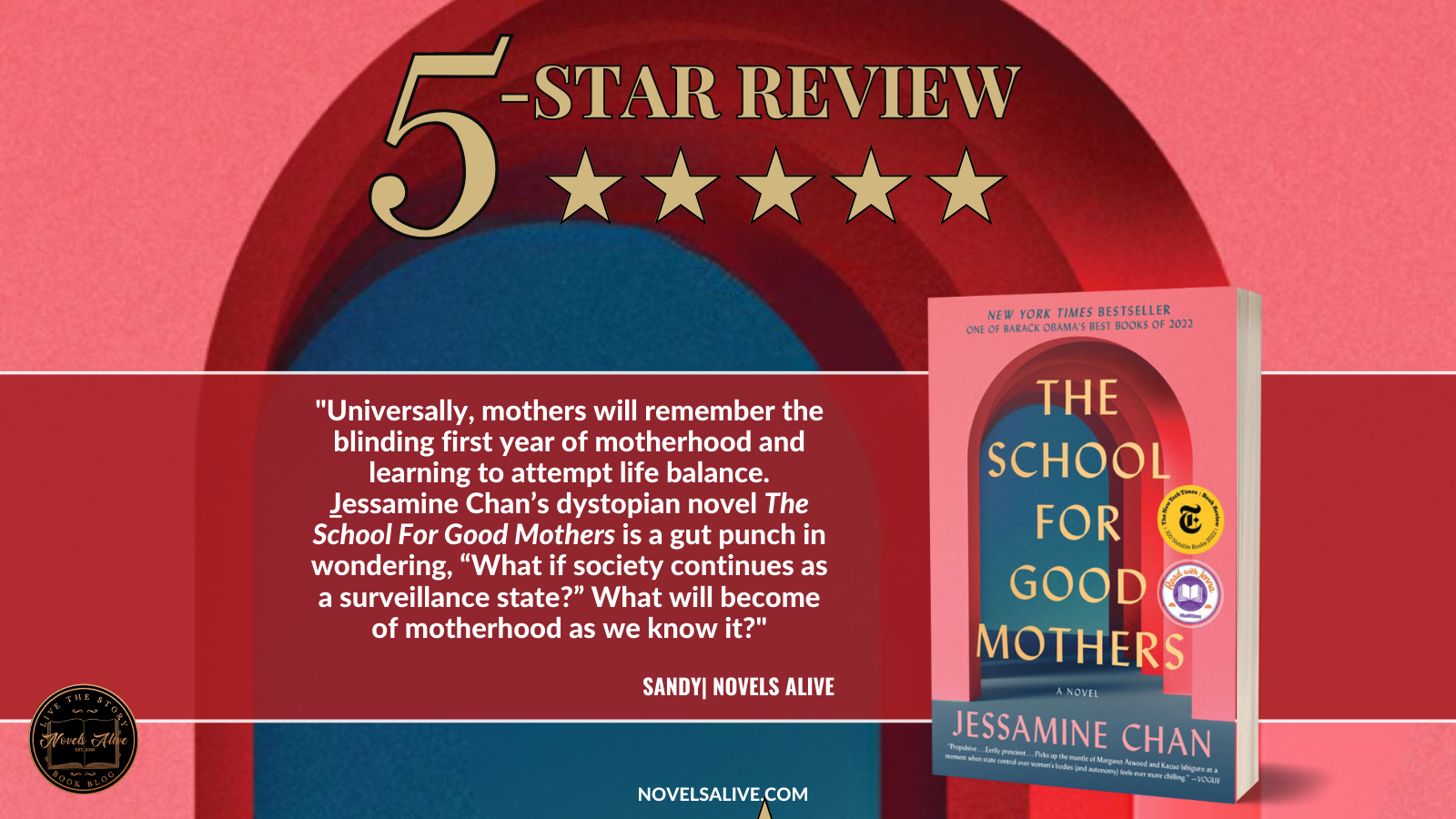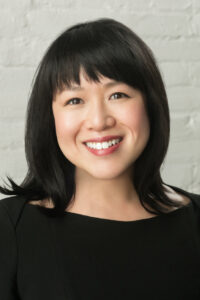

Publication Date: February 7, 2023
Frida Liu is struggling. She doesn’t have a career worthy of her Chinese immigrant parents’ sacrifices. She can’t persuade her husband, Gust, to give up his wellness-obsessed younger mistress. Only with Harriet, their cherubic daughter, does Frida finally attain the perfection expected of her. Harriet may be all she has, but she is just enough.
Until Frida has a very bad day.
The state has its eye on mothers like Frida. The ones who check their phones, letting their children get injured on the playground; who let their children walk home alone. Because of one moment of poor judgement, a host of government officials will now determine if Frida is a candidate for a Big Brother-like institution that measures the success or failure of a mother’s devotion.
Faced with the possibility of losing Harriet, Frida must prove that a bad mother can be redeemed. That she can learn to be good.

Some books haunt you for a lifetime. The dystopian yet all too real, The School for Good Mothers will surely be one of those novels. Mostly scrutinizing the way that mothers are judged by themselves and others and throwing in a good portion of the imbalance of fair treatment of women in general, author Jessamine Chan gives us plenty to think about in her debut novel.
Frida Liu is trying to hold it all together. She has arranged to work partially from home to accommodate the days she shares custody of her toddler daughter with her recently divorced husband. Then she has “a very bad day.” She has insomnia, her child has an ear infection with five sleepless nights, and she is faced with a work deadline. She leaves her toddler at home and runs to the office to pick up a folder. There it all begins…or ends.
She is reported to CPS, charged, and soon sent to a rehabilitation home for mothers. In the span of a few days in the world of the character, the reader will vicariously live the bewilderment and emotional turmoil that will preview the tone for the rest of the novel.
Frida and eighty-five other mothers begin their year-long lessons by learning the chant, ”I am a bad mother, but I am learning to be good.” The school’s premise is that bad parents must be transformed from the inside out. No one would argue that good parenting involves the right instincts, feelings, and ability to make split-second, safe and nurturing decisions. However, psychological torture befalls each mother, as very real child-rearing scenarios are thrust upon them with impossible expectations. All the while reuniting with Harriet, her daughter, keeps Frida surviving.
As Harriet is cared for by her father and his girlfriend, FaceTime visits are the short-term rewards that Frida works towards. More often, these FaceTimes are chastisements used against her by the school.
The author intensifies the connection between characters and readers through the plot, including robotic children that are all too real. I held my breath with hope for Frida in each challenge. My own moods and expectations seemed to break down as the fictional year marched on, matching Frida’s.
When the “bad fathers” are introduced in the last fourth of the book, I was both expecting the inequality of the treatment of mothers and fathers and infuriated by the societal imbalance. It seems inconceivable that this is Ms. Chan’s first novel. Her ability to captivate seems only possible for an author that has mulled over and created dozens of plots and characters. I would find it hardly unlikely that anyone could not experience this viscerally.
Universally, mothers will remember the blinding first year of motherhood and learning to attempt life balance. Jessamine Chan’s dystopian novel The School For Good Mothers is a gut punch in wondering, “What if society continues as a surveillance state?” What will become of motherhood as we know it? 


Jessamine Chan’s short stories have appeared in Tin House and Epoch. A former reviews editor at Publishers Weekly, she holds an MFA from Columbia University’s School of the Arts and a BA from Brown University. Her work has received support from the Elizabeth George Foundation, the Bread Loaf Writers’ Conference, the Wurlitzer Foundation, the Jentel Foundation, the Kimmel Harding Nelson Center, the Anderson Center, the Virginia Center for the Creative Arts, and the Ragdale Foundation. She lives in Philadelphia with her husband and daughter.


















